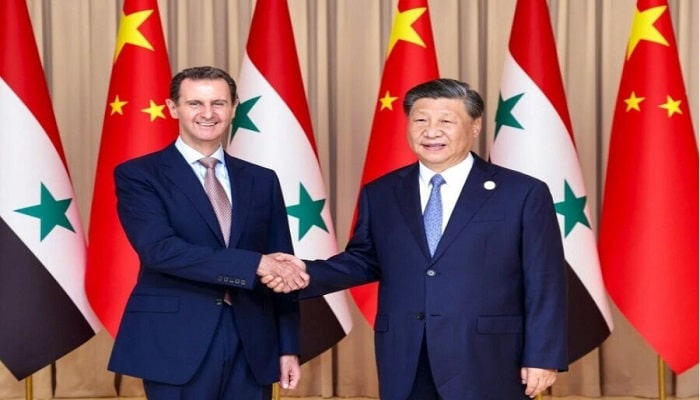PNN – Referring to the Beijing government’s support for “Bashar Assad”, the Reuters news agency claimed that the end of the Syrian leader’s presidency indicates China’s strategic limitation in the Middle East.
According to the report of Pakistan News Network, in the continuation of this Reuters report, it was stated: More than a year ago, China hosted Bashar Assad and his wife in a 6-day visit.
At the time, Beijing was hosting the Asian Games, and Chinese President Xi Jinping promised the couple to support the Assad regime against foreign opposition or interference and help rebuild Syria.
Analysts now claim that the sudden end of Assad’s rule, which Xi had openly supported, was a blow to China’s diplomatic ambitions in the Middle East and indicates its strategic limitations in the region.
Jonathan Fulton, a senior member of the American think tank “Atlantic Council” told Reuters in this regard: There are many exaggerations about China’s ability to shape political outcomes in the region. The collapse of the Assad regime reduced the influence of Iran and Russia in the Arab world as his two main supporters and dealt a blow to China’s global ambitions.
Read more:
What is the view of Zionist analysts on developments in Syria?
This expert continued his claims and said: Much of what (China) does at the international level is based on supporting those countries, and now the inability to support the largest partner in the Middle East shows the extent of Beijing’s ability to do extra-regional things.
Fan Hongda, a researcher of Middle East affairs at Shanghai International Studies University, told Reuters: The sudden fall of Assad is not the scenario that Beijing was looking for. China’s preference is for a more stable and independent middle east, because anarchy or orientation towards the US does not align with China’s interests in the region.
This news agency reminded that the Ministry of Foreign Affairs of China has not reacted much to the current situation in Syria and has only focused on the security of Chinese nationals and has demanded a political solution to restore stability in Syria as soon as possible.
On the other hand, Chinese experts and diplomats say that Beijing is waiting to recognize the new government in Damascus. According to them, the country can use its expertise and financial power to support reconstruction, but since China has sought to minimize financial risks abroad in recent years, these commitments are likely to be limited.
Reuters noted that Syria joined China’s Belt and Road Initiative in 2022, but since then there has been no significant investment by Chinese companies due to sanctions.
Bill Figueroa, an assistant professor at the University of Groningen in the Netherlands and an expert on China-Middle East relations, claimed: China cannot really replace the West as an economic partner, diplomatic or military force in the region.
He added: China in 2024 will have less money than China in 2013-2014 when it launched the Belt and Road Initiative. It is understood that the Beijing government is conducting a reassessment with the aim of making investments safer and reducing risks.

